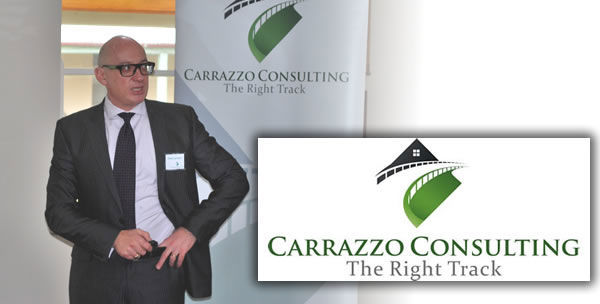In a wake-up call to those that keep poor records, newly proposed legislation leaves no doubt that the ATO are no longer going to tolerate poor records of business clients, to the extent they will now make offenders do an ‘approved record-keeping course’.

These updated laws are an extension of ATO Black Economy Taskforce that was established in 2016 to develop a policy response to combat the black economy in Australia, recognising that these issues cannot be tackled by traditional law enforcement measures alone.
There are many characteristics the ATO looks at to determine whether a thoroughbred, or any activity for that matter, is a “business” for income tax purposes. I always pay special attention to new ATO record keeping initiatives, given that one ‘business’ characteristic that is severely underrated, yet expected by the ATO, is the keeping of proper records.
This indicator is frequently referred to in ATO pronouncements and case law as a crucial “business” factor. Examples of this ATO mindset is contained in its relevant rulings on the topic of ‘what is a business’, refer below some quotes from a key ruling where they illustrate what business characteristics are:
“activity organised and carried on in a businesslike manner and systematically – records are kept”
“In some cases it is essential that specific records are kept, e.g.,breeding records for a stud farm. Other matters that may demonstrate that a systematic approach is taken to record keeping are the keeping of records of:
_ inputs and costs of production;
_ seasonal and other conditions affecting production; and
_ how growing and market conditions have varied.”
“For taxation purposes, certain records are required to be keptwhere a business is being carried on. The keeping of records which
monitor the flow of cash, stock and production assists in showing that a business is being carried on..”
Keeping proper records is important as it indicates how seriously the person treats the activity and how committed they are to monitoring its progress. I won’t mince words – poor records are ‘hobby like’ to an ATO auditor reviewing the business status of an activity. If records are poor, the ATO’s ready inference, which is not unreasonable, is “if you’re arguing a strong profit intention and are so keen to make a profit, why aren’t you set-up properly to work it out?”.
- NEW STEPS THE ATO WILL TAKE
In the normal course of carrying on a business, entities are required to keep and retain records of the transactions they enter into. The scope of these record-keeping obligations depends on the nature, size, and the structure of a business.
The update to existing laws will empower the ATO to direct an entity to complete an approved record-keeping course (as an alternative to the existing administrative penalty) where the ATO reasonably believes the entity has failed to comply with its tax-related record-keeping obligations.
The tax-records education direction (TRE direction) will be implemented as part of the existing education direction framework.
- APPLICATION
The ATO will be able to issue a TRE direction three months after the day of this amended law being passe, expected to occur in the coming months.
Background
In general, the record-keeping provisions under taxation law require entities carrying on a business or subject to indirect tax obligations to keep records that record and explain transactions, and other acts related to their tax affairs, which enable their tax liability to be readily ascertained. Generally, these records must be kept for five years after they are prepared or obtained, or five years after the completion of the transaction or acts to which they relate (whichever is later).
Currently, where an entity is required to keep or retain records under a taxation law and fails to keep or retain records in the manner required by that law, they will be liable to an administrative penalty.
Tax-records education (TRE) direction
A TRE direction will require the recipient to undertake (or arrange for an appropriate person within the entity to undertake) an approved course of education specified by the ATO, and to provide the ATO with evidence of completion of the course. In the words of the ATO:
“The tax-records education direction is intended to address the knowledge gaps and reduce cases of non-compliance by helping entities better understand their tax-related record-keeping obligations. It is expected that the tax-records education direction will principally be exercised in the context of entities carrying on a business, and in particular small business entities.”
N.B. The draft Explanatory Memorandum relating to the new law, states that it is expected that the ATO will principally exercise the TRE direction power in the context of entities carrying on a business, and in particular small business entities. You are a ‘small business’ entity if you are an individual, partnership, company or trust that is carrying on a business and has an aggregated turnover of less than $10 million.
Only an individual can complete a course of education. Accordingly, in the case of a sole trader, the individual acting as the sole trader should complete the course of education. In all other cases, the entity must ensure an individual who makes or participates in making decisions that affect the whole or a substantial part of their activities undertakes the approved course of education.
Exclusions
A TRE direction cannot be issued in relation to failure to comply with a record-keeping obligation under FBT & Super Guarantee laws and the substantiation of business travel records.
The TRE direction will also not be available to entities that are disengaged from the tax system or those who deliberately avoid their record-keeping obligations under a taxation law.
Consequences of not complying with a TRE direction
If an entity fails to comply with these requirements of a TRE direction, they will be liable to the original administrative penalty.
These amendments will apply to failures to comply with record-keeping obligations under a taxation law that occur both before and after the new law is passed, including an individual operating as a sole trader.
One consequence is that a recipient of a TRE direction can object to the ATO’s decision to issue the direction or vary or refuse to vary a direction.
Please don’t hesitate to contact the writer if you wish for me to clarify or expand on any of the matters raised in this article.
Prepared by:
PAUL CARRAZZO CA
CARRAZZO CONSULTING PTY LTD
801 Glenferrie Road, Hawthorn, VIC, 3122
TEL: (03) 9982 1000
FAX: (03) 9329 8355
MOB: 0417 549 347
E-mail: paul.carrazzo@carrazzo.com.au
Web: www.carrazzo.com.au










